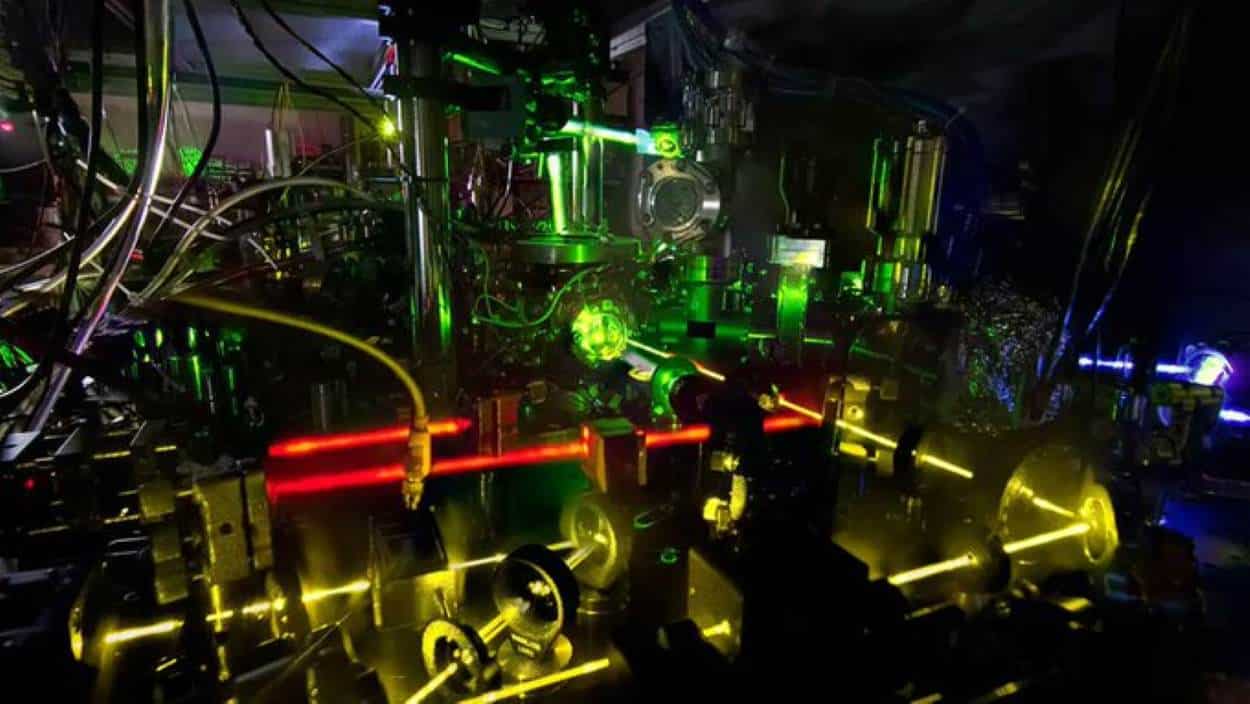The Defence Science and Technology Laboratory (DSTL) in the UK has engineered a revolutionary atomic clock that, through advanced quantum technology, could enhance the security of military operations.
As the Ministry of Defence (MoD) states, this development is a strategic move to diminish reliance on GPS systems, which adversaries can easily disrupt.
Developed at DSTL, this quantum clock represents a significant advancement in intelligence, surveillance, and reconnaissance technologies by offering an alternative to vulnerable GPS systems. In a recent statement, the MoD celebrated this innovation as the first in the UK, capable of deployment in military operations within the next five years. The device’s precision is exceptionally high, promising to lose less than a second over billions of years, which could redefine time measurement standards globally.
“This first trial of advanced atomic clock represents a significant achievement in the UK’s #quantum technology capabilities"
This tech will help make military operations more robust, secure and precise@mariaeaglemp @DefenceHQ @infleqtion @RoyalNavy https://t.co/3jO7E46f7C pic.twitter.com/tgwp56Qznv
— Dstl (@dstlmod) January 2, 2025Maria Eagle, the Minister for Defence Procurement and Industry, highlighted the integration of this technology as a reflection of the government’s commitment to innovation. “This groundbreaking technology not only strengthens our operational capabilities but also propels progress in our industrial and scientific sectors, supporting high-skilled jobs,” she explained. With an investment exceeding GBP 28 million, the DSTL aims to position the UK at the forefront of adopting these cutting-edge technologies.
UK develops 'most accurate military clock ever’, that loses less than a second over billions of years, helps missile accuracy – and saves the UK losing ₤1 billion a day if the current vulnerable GNSS setup were lost.
Time to boost plummeting Army recruitment numbers, perhaps? pic.twitter.com/oplRLzagsi
— RT (@RT_com) January 2, 2025This first field trial of DSTL’s UK-built optical atomic clock departs from conventional Global Navigation Satellite Systems (GNSS) and addresses known national security vulnerabilities. DSTL’s Chief Executive Paul Hollinshead noted that the trial represents a significant stride in the UK’s quantum technology capabilities, signalling a robust exploration of quantum technologies for secure and resilient operational advantages.
'Quantum clock' in development at secret lab could revolutionise UK intelligence https://t.co/rguiqFTXTD pic.twitter.com/JIJVFOt2Sq
— The Mirror (@DailyMirror) January 3, 2025The applications of quantum clock technology extend well beyond precise timekeeping. This technology could revolutionize global navigation systems, improving GPS accuracy and aiding everything from satellite communications to aircraft navigation. The MoD also anticipates future research to miniaturize the technology, enabling widespread adoption in military vehicles and aircraft. This would further enhance the UK armed forces’ edge over adversaries in critical timing operations.
The trial involved collaboration with key partners such as Inflexion (UK), Aquark Technologies, HCD Research, and Imperial College London and technology developed in-house at DSTL’s quantum laboratory. Commander Matt Steele of the Royal Navy emphasized the shift from theoretical to practical applications of quantum technologies, underscoring their potential to secure a significant operational advantage in conjunction with GPS soon.






